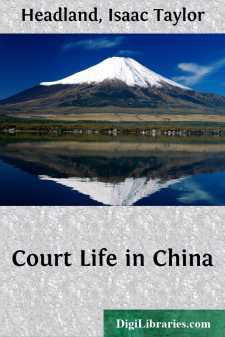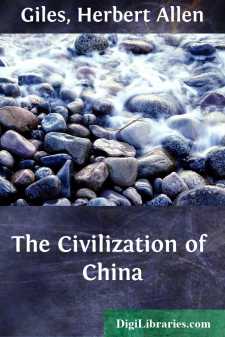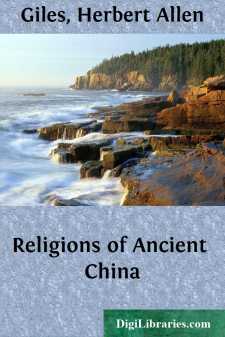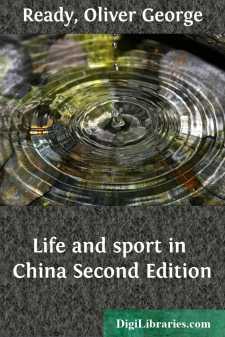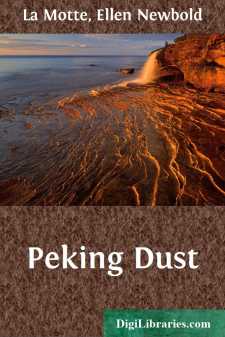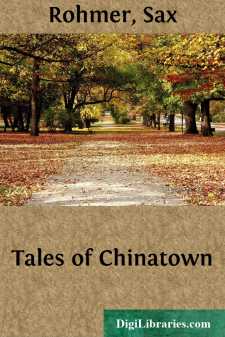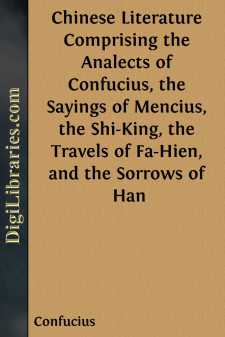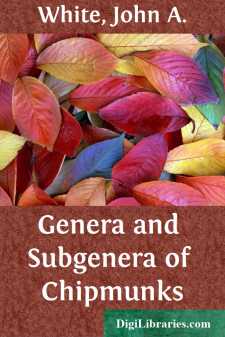Categories
- Antiques & Collectibles 13
- Architecture 36
- Art 48
- Bibles 22
- Biography & Autobiography 813
- Body, Mind & Spirit 142
- Business & Economics 28
- Children's Books 15
- Children's Fiction 12
- Computers 4
- Cooking 94
- Crafts & Hobbies 4
- Drama 346
- Education 46
- Family & Relationships 57
- Fiction 11828
- Games 19
- Gardening 17
- Health & Fitness 34
- History 1377
- House & Home 1
- Humor 147
- Juvenile Fiction 1873
- Juvenile Nonfiction 202
- Language Arts & Disciplines 88
- Law 16
- Literary Collections 686
- Literary Criticism 179
- Mathematics 13
- Medical 41
- Music 40
- Nature 179
- Non-Classifiable 1768
- Performing Arts 7
- Periodicals 1453
- Philosophy 64
- Photography 2
- Poetry 896
- Political Science 203
- Psychology 42
- Reference 154
- Religion 513
- Science 126
- Self-Help 84
- Social Science 81
- Sports & Recreation 34
- Study Aids 3
- Technology & Engineering 59
- Transportation 23
- Travel 463
- True Crime 29
Sort by:
THE EMPRESS DOWAGER—HER EARLY LIFE One day when one of the princesses was calling at our home in Peking, I inquired of her where the Empress Dowager was born. She gazed at me for a moment with a queer expression wreathing her features, as she finally said with just the faintest shadow of a smile: "We never talk about the early history of Her Majesty." I smiled in return and continued: "I...
more...
CHAPTER I—THE FEUDAL AGE It is a very common thing now-a-days to meet people who are going to "China," which can be reached by the Siberian railway in fourteen or fifteen days. This brings us at once to the question—What is meant by the term China? Taken in its widest sense, the term includes Mongolia, Manchuria, Eastern Turkestan, Tibet, and the Eighteen Provinces, the whole being...
more...
CHAPTER I — THE ANCIENT FAITH Philosophical Theory of the Universe.—The problem of the universe has never offered the slightest difficulty to Chinese philosophers. Before the beginning of all things, there was Nothing. In the lapse of ages Nothing coalesced into Unity, the Great Monad. After more ages, the Great Monad separated into Duality, the Male and Female Principles in nature; and then, by a...
more...
ANGLO-CHINESE LIFE Anglo-Chinese life is a sealed book to most people at home, who, if they ever think about it at all, do so with minds adversely biassed by ignorance of the conditions, a hazy idea of intense heat, and a remembrance of cruel massacres. "Going to China" always elicits looks and exclamations of astonishment at so rash an undertaking, but which the stock questions as to whether...
more...
"It is but a step from Confucius to confusion," said I, in a brief discussion of the Chinese question. "Then let us take it by all means," replied the artist, who had been an indulgent listener for at least ten minutes. We were strolling upon the verge of the Chinese Quarter in San Francisco, and, turning aside from one of the chief thoroughfares of the city, we plunged into the busiest...
more...
I POOR OLD CHINA When I came away last August, you said you wanted me to tell you about our travels, particularly about China. Like most Americans, you have a lurking sentimental feeling about China, a latent sympathy and interest based on colossal ignorance. Very well, I will write you as fully as I can. Two months ago my ignorance was fully as overwhelming as yours, but it is being rapidly dispelled....
more...
by:
Sax Rohmer
"DIAMOND FRED" In the saloon bar of a public-house, situated only a few hundred yards from the official frontier of Chinatown, two men sat at a small table in a corner, engaged in earnest conversation. They afforded a sharp contrast. One was a thick-set and rather ruffianly looking fellow, not too cleanly in either person or clothing, and, amongst other evidences that at one time he had known...
more...
by:
Confucius
THE ANALECTS BOOK I On LearningвÐâMiscellaneous Sayings:вÐâ "To learn," said the Master, "and then to practise opportunely what one has learntвÐâdoes not this bring with it a sense of satisfaction? "To have associates in study coming to one from distant partsвÐâdoes not this also mean pleasure in store? "And are not those who, while not...
more...
by:
George Gibbs
~PART I.~ CHINOOK-ENGLISH. NOTE.—The references, "Hale," "Cook," "Jewitt," are respectively toHale's "Ethnology of the United States Exploring Expedition," "Cook'sVoyages," and "Jewitt's Narrative." The others, as "Anderson," "Pandosy,""Shaw," "Tolmie," are from manuscript notes of those gentlemen...
more...
by:
John A. White
Introduction The supraspecific categories of the chipmunks, as in most other groups of squirrels, have been a source of controversy for many years. Before presenting new evidence and a review of older evidence bearing on the problem, it seems desirable to review briefly in chronological order, the taxonomic history of the genera and subgenera of the chipmunks. Linnaeus (1758:64) described the eastern...
more...


